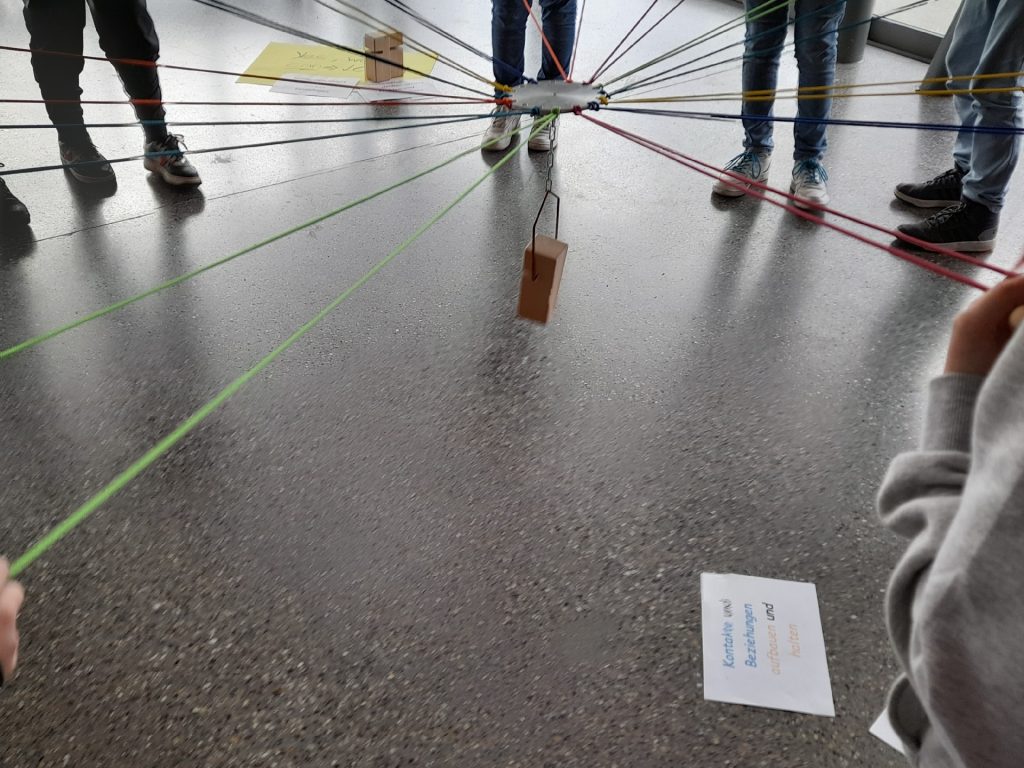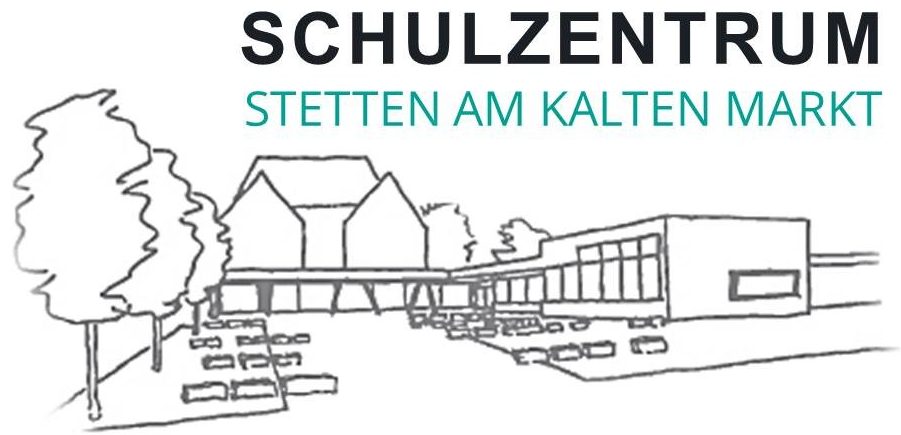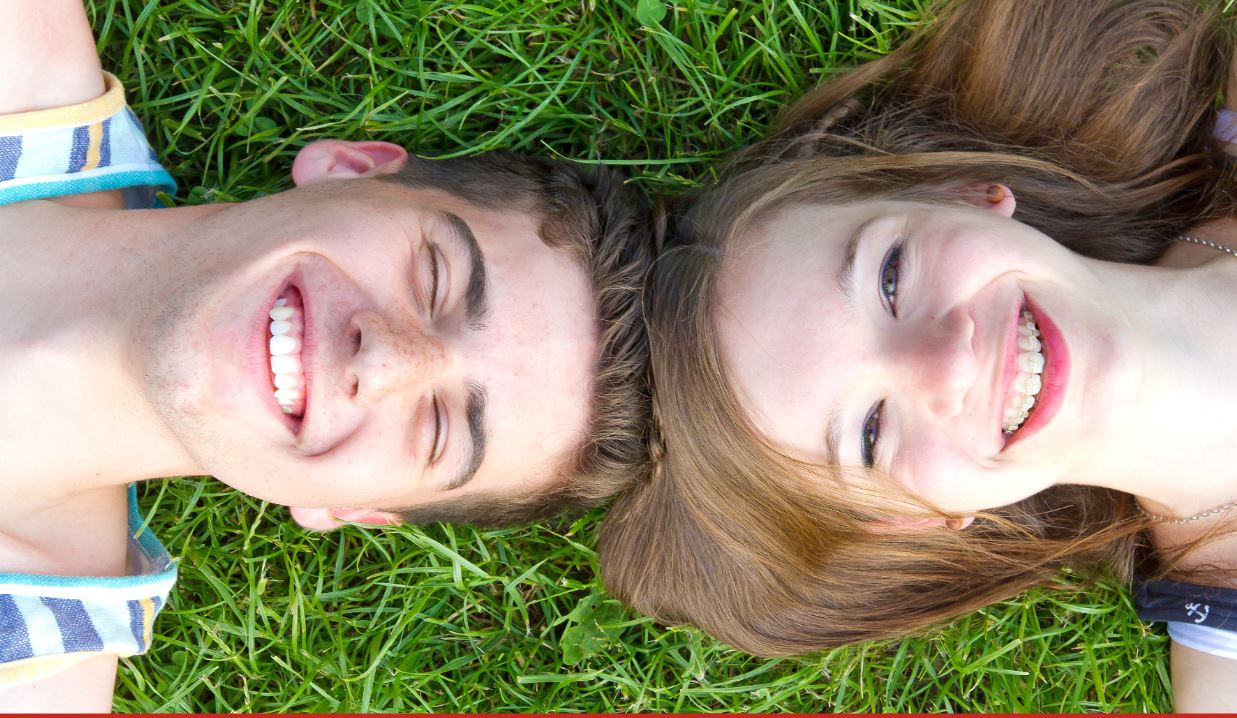School social work starts pilot project at the Stetten School Centre in LG 6.1
How is the right way to react to being falsely accused?
Lisa Lisa has done a lot of cramming for her exam, but her teacher finds a cheat sheet under Lisa's desk that she didn't write herself. cheat sheet that she didn't write herself...what now? Exam flunked?
Was all that effort for nothing?
LISA is not a real person, but a character from the programme On the way to life skills and self-regulation with LARS & LISA. Initiator of the pilot project to implement the life skills programme at the Stetten school centre Tobias Buck from the school social work department of the Mariaberg regional social services Mariaberg. He has divided the programme into two modules and, together with the learning group with the learning group 6.1 of the school centre Stetten a.k.M. and learning group facilitator Annemarie Ziegler. The first module took place the last three weeks during lesson time and was met with increasing increasingly interested learning partners.
The two acronyms LARS and LISA in the programme stand for "Lust An Realistic Sichtweise" and "Leichtigkeit Im Social Alltag" and summarise what the training programme is about: emotion regulation, motivation, volition. I beg your pardon?
Using exemplary situations from everyday school life and simple teambuilding exercises team-building exercises, young people are encouraged to increase their resilience and control their emotions, resilience and control over their emotions to enable them to lead a successful life. enable them to lead a successful life. In other words: learning to learning to control oneself, committing oneself to something and wanting to do something.
The training material consists of various video game scenes in which the acronyms acronyms LARS and LISA act as characters to enable the students to better identification with what they have learned. Supporting worksheets self-reflection worksheets are designed for individual work and action-oriented Team games give each pupil the opportunity to test their social competence.
Lust for life with LARS and LISA for young people in lower secondary school was originally designed by a team of doctors by a team of doctors and psychologists from the University of Tübingen. form as part of social education at schools in Baden-Württemberg. The aim is to lead to long-term improvement of the mental health of young people. of young people. It corresponds to the guiding perspective "Prevention and prevention and health promotion" of the 2016 education plan, whose fields of learning and action fields of learning and action refer to the life skills concept of the WHO.
"Young people today are more involved with developmental tasks than previous generations," explains Tobias Buck when asked why he started LARS and LISA.
"A world with an of opportunities, but also dangers, demands self-confident and competent action from competent action and often leads to young people being overtaxed. overtaxing of young people. Instead of being faced with the agony of choice or or the feeling of arbitrariness in the shaping of their lives, young people must learn to young people must learn to reconcile their goals with their own abilities and possibilities. with their own abilities and possibilities.
On a professional level The learning partners at the school centre already have the opportunity to discuss with the coach the methods that with the coach to discuss the methods that are appropriate for their learning goals. Now they are to LARS and LISA should enable them to mobilise their resources to a far greater resources to a much greater extent, especially on a social level.
This is something that LISA's
counterpart LARS experiences first hand when he has to cope with failure after a
basketball tournament. Every pupil has experienced such a situation
every student at some point, and it is very easy to throw in the towel after a
throw in the towel after a defeat.
Here, a special exercise gives the students a differentiated view of personal failure.
of personal failure: using typical sentences called "pullers down" and "builders
and "builders", it is shown how a constructive assessment of the overall
situation, a realistic rather than dramatic assessment of the experience is made.
assessment of the experience is made. In short, "I just can't
I just can't play basketball" is less likely to get LARS anywhere than "I wasn't really in the game today."
That one does not learn this realistic
assessment competence is not learned as quickly as flipping a switch,
Tobias Buck demonstrates in the next video: LISA has accidentally stood LARS up at a date
LISA has accidentally stood LARS up on a date in town, but LARS is far from constructive thinking.
and suspects, "I'm not good enough for her."
The learning partners feel a little queasy when they watch it, because just a few days ago there were some
there were some conflicts in the learning group about who meets with whom in the
with whom in the schoolyard during the long break. Tobias Buck takes up the
Tobias Buck picks up the thread: "What could LARS do if he wants LISA to meet him again?
to meet up with him again?
And already the group is in the middle of a discussion about how feelings influence our actions. influence our actions. What you can do to control your impulses and how this is related to self-knowledge and self-awareness and frustration tolerance. Buzzwords that are used in in the school education and upbringing curriculum.
"Schools have a key role to play in schools have a key role to play in teaching these skills," explains Annemarie Ziegler. "Pupils spend more and more time in the institution, the demands of the require complex actions and developmental tasks are increasingly falling to the increasingly fall to the school instead of the parental home. The acquisition of these skills is fundamental to a young person's educational and life success."
The personal requirements, that are placed on a pupil today to successfully complete his or her school career have are now almost as high as those in the "adult world". Professions like jobs demand the highest level of social competence.
The bar for the "output for the "output", the result, of LARS and LISA is quite high - can the training programme meet this demand?
After the first After the first implementation of LARS and LISA, the results are consistently positive. learning partners engage with the programme's themes, improve the quality of their quality of their cooperation and reflect on their experiences in objective language.
How does the learning group facilitator?
"For me it was a stroke of to be able to observe most of the project and to see the positive effects on the students during the 90-minute the positive effects on the pupils during the 90-minute training phases," summarises Annemarie Ziegler.
"Everyone has benefited from it. This is in the class council in a changed attitude towards the more conflictual topics and also and also when the learning partners have to formulate their concerns appropriately. Overall, LARS and LISA have improved the relationship between the learning partners. improved.
A highlight of this The highlight of this beneficial development was the well-known team development game "Tower of Power". Power", which Tobias Buck conducted in the final lesson of the first part of LARS and LISA. The aim of the game is to pile wooden blocks on top of each other, without using hands or feet. Only one catching device for the block is used by several taut ropes in the hands of the individual team members. controlled. The tricky task can only succeed if everyone works together - which the 6.1 did brilliantly.

"The LARS and LISA programme was a huge success," Tobias Buck affirms. "I would like to see it implemented on a compulsory basis in lower secondary schools in the future."
And what do the girls and boys and boys from 6.1 see it?
It was great fun," says David Hotz. It was great fun," says David Hotz, "and with the Tower of Power you had to really to get the block on top of the other one."
"I was impressed by how well our learning group worked well together. We could rely on each other, Jennifer Sieber praises the newly strengthened team spirit.
Enthusiastic is also Diego Rogdrigues, spokesman for the study group: "I'm already looking forward to the next part! next part!"
After a break of After a break of a few weeks, the second part of the training programme for the students will be about behaviour, appropriate body language and establishing sustainable and establishing sustainable contacts with other people.
Tobias Buck and Annemarie Ziegler are also looking forward - to the evaluation phase after the second part and to the continuation of this press report.

